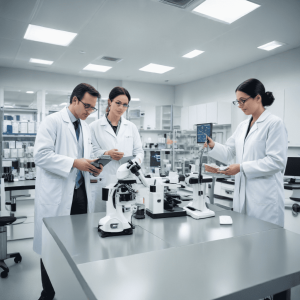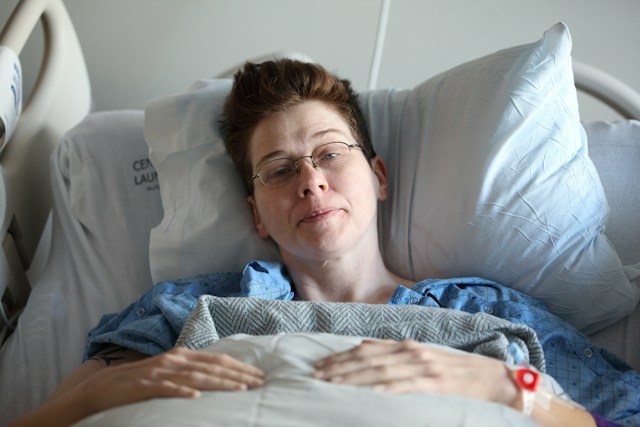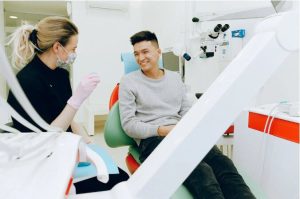
The mind and body are intricately connected, and this connection is nowhere more evident than in the relationship between diet, mindfulness practices, and spiritual experiences. Recent advances in neuroscience have begun to unravel the biological mechanisms behind spiritual experiences, revealing how what we eat and how we think can profoundly impact our brain function and emotional well-being. Understanding these connections can provide valuable insights into how we can enhance our spiritual lives through mindful living and intentional dietary choices.
The Neuroscience of Spiritual Experiences
Spiritual experiences, such as feelings of transcendence, deep meditation, or a sense of connection with something greater than oneself, are often accompanied by specific changes in brain activity. Research has shown that during these experiences, there is increased activity in the prefrontal cortex, the brain area associated with decision-making, attention, and self-awareness. At the same time, there is often reduced activity in the parietal lobe, which is responsible for processing sensory information and spatial awareness. This altered brain activity is thought to contribute to feeling “outside oneself” or connected to a higher power that many people report during spiritual experiences.
Meditation has been found to trigger specific changes in brain activity. Consistent meditation practice can result in lasting alterations in the brain, such as increased gray matter density in regions linked to learning, memory, and emotional control. These changes contribute to better mental health and expand the potential for spiritual experiences, enhancing one’s ability to engage with the spiritual dimensions of life.
Explore resources like the Matrix of Destiny. These resources can provide further insights into personal spiritual alignment and growth, offering a deeper understanding of how these experiences shape our lives.
The Impact of Diet on Brain Function and Spiritual Well-Being
Diet plays a crucial role in brain health, and certain nutrients have been found to support the cognitive and emotional processes that underlie spiritual experiences. For example, omega-3 fatty acids, which are abundant in fish, flaxseeds, and walnuts, are essential for maintaining healthy brain function. These fatty acids support the structure of brain cells and have been linked to improved mood, better focus, and enhanced emotional resilience—all of which can facilitate deeper spiritual experiences.
Other nutrients, such as antioxidants found in colorful fruits and vegetables, protect the brain from oxidative stress, which can impair cognitive function and reduce mental clarity. B vitamins, particularly B6, B12, and folate, are also critical for brain health, supporting the production of neurotransmitters that regulate mood and emotions. These nutrients are essential for maintaining the brain’s health and functionality, thereby supporting a more profound spiritual experience.
Mindful eating, the practice of being fully present while eating, can further enhance the relationship between diet and spiritual well-being. By paying attention to the sensory experience of eating—taste, smell, texture, and even the emotional responses to food—individuals can cultivate a deeper connection to their food and its impact on their body and mind. This practice not only improves digestion and nutrient absorption but also fosters a greater sense of gratitude and mindfulness, which can enhance spiritual experiences.
How Mindfulness Practices Influence the Brain
Mindfulness practices, such as meditation and deep breathing, have been shown to profoundly impact the brain’s structure and function. These practices promote neuroplasticity, the brain’s ability to reorganize itself by forming new neural connections. This flexibility allows the brain to adapt to new experiences, learn new skills, and recover from injury.
One of the most significant effects of mindfulness practices on the brain is the reduction of activity in the amygdala, the brain’s fear center. This reduction reduces stress and anxiety, allowing for greater emotional regulation and a more balanced state of mind. Mindfulness also increases activity in the prefrontal cortex, enhancing focus, decision-making, and the ability to maintain a calm, centered state of mind—conditions that are conducive to spiritual experiences.
Additionally, regular mindfulness practice has been associated with increased connectivity between different areas of the brain, promoting a more integrated and holistic way of thinking. This interconnectedness supports the ability to see the bigger picture, appreciate the interconnectedness of all life, and experience a deeper sense of spiritual connection.
The Integration of Diet and Mindfulness for Enhanced Spiritual Experiences
Integrating mindful eating with mindfulness practices can create a powerful synergy that supports both physical and spiritual well-being. By choosing foods that nourish the brain and practicing mindfulness during meals, individuals can create an environment in which spiritual experiences are more likely to occur. This holistic approach not only supports brain health but also fosters a deeper connection to oneself and the world, enhancing the quality of spiritual experiences.
In practice, this might involve starting the day with a nutrient-rich breakfast, followed by a morning meditation session to center the mind and prepare for the day ahead. Throughout the day, mindful eating can be practiced during meals, paying attention to the food’s flavors, textures, and the body’s response. This combination of diet and mindfulness creates a foundation for spiritual growth, allowing individuals to fully engage with their spiritual practices and experience the benefits on a deeper level.
READ ALSO: Power of Metabolism: Effective Weight Loss
Conclusion: The Biological and Spiritual Harmony
The biological basis of spiritual experiences underscores the deep connection between the mind, body, and spirit. By understanding how diet and mindfulness practices affect the brain, we can enhance our spiritual experiences and foster a greater sense of well-being. Whether through meditation, mindful eating, or intentional dietary choices, this holistic approach supports both physical health and spiritual growth, leading to a more fulfilled and balanced life.





 Not a few sports buffs and bodybuilding enthusiasts trust PGAnabolics (pganabolics.is/product-category/syn-pharmaceuticals/) as their reliable go-to online source of the most commonly used anabolic steroids. The website’s reputation as a trustworthy online seller of anabolic steroids and other exotic healthcare
Not a few sports buffs and bodybuilding enthusiasts trust PGAnabolics (pganabolics.is/product-category/syn-pharmaceuticals/) as their reliable go-to online source of the most commonly used anabolic steroids. The website’s reputation as a trustworthy online seller of anabolic steroids and other exotic healthcare  Oral steroids are popular because they have faster detection time, which refers to the period when users see noticeable muscle gains and experience improved muscle strength. However, unlike injectable steroids, oral steroids cannot be used for long term, as excessive use can have adverse effects on the human liver. Lest users of anabolic steroids forget, these are compounds made from synthetic or chemical substances, formulated to ed to mimic the effects of the male testosterone hormone.
Oral steroids are popular because they have faster detection time, which refers to the period when users see noticeable muscle gains and experience improved muscle strength. However, unlike injectable steroids, oral steroids cannot be used for long term, as excessive use can have adverse effects on the human liver. Lest users of anabolic steroids forget, these are compounds made from synthetic or chemical substances, formulated to ed to mimic the effects of the male testosterone hormone.

 To avoid complications, chronic disorders include diabetes and cardiovascular diseases call for continuous treatment. Health insurance gives access to regular monitoring, required drugs, and specialized advice. Having insurance coverage helps people to keep better control over their blood sugar levels and lowers the risk of heart disease, therefore improving health outcomes in Florida, where the prevalence of diabetes is somewhat high.
To avoid complications, chronic disorders include diabetes and cardiovascular diseases call for continuous treatment. Health insurance gives access to regular monitoring, required drugs, and specialized advice. Having insurance coverage helps people to keep better control over their blood sugar levels and lowers the risk of heart disease, therefore improving health outcomes in Florida, where the prevalence of diabetes is somewhat high.









